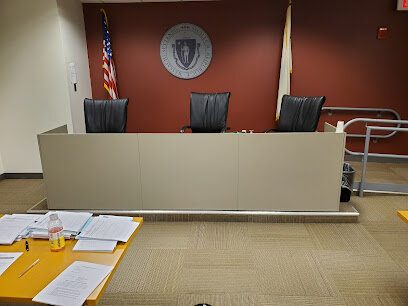Best White Collar Crime Lawyers in Connecticut
Share your needs with us, get contacted by law firms.
Free. Takes 2 min.
Or refine your search by selecting a city:
List of the best lawyers in Connecticut, United States

About White Collar Crime Law in Connecticut, United States
White collar crime refers to a broad range of non-violent, financially motivated offenses that are typically committed by individuals, businesses, or government officials. In Connecticut, these crimes often involve deceit, fraud, or violation of trust and are usually prosecuted at the state or federal level. Common examples include embezzlement, insurance fraud, securities fraud, bribery, identity theft, money laundering, and tax evasion. The consequences of a white collar crime conviction can be severe, involving significant fines, restitution, imprisonment, and lasting damage to one's professional reputation.
Why You May Need a Lawyer
If you are facing an investigation or have been accused of a white collar crime in Connecticut, consulting an attorney is critical. An experienced lawyer can help you understand the charges against you, protect your rights during investigations and legal proceedings, and work to negotiate favorable outcomes. Common situations where people may find legal help vital include being subpoenaed for records, receiving a target letter, being questioned by law enforcement or regulatory agencies, or facing formal charges such as fraud, embezzlement, or forgery. Legal representation is crucial due to the technical and complex nature of these cases, as well as due to the high stakes involved.
Local Laws Overview
White collar crime in Connecticut is prosecuted under both state and federal law, and the state often applies specific statutes related to particular types of offenses.
Key Connecticut statutes addressing white collar crime include:
- Larceny (Conn. Gen. Stat. § 53a-119 et seq.): Covers theft through fraud, embezzlement, or other deceptive means.
- Forgery and Fraudulent Practices (Conn. Gen. Stat. § 53a-138 et seq.): Addresses offenses like forgery, issuing bad checks, and identity theft.
- Computer Crimes (Conn. Gen. Stat. § 53a-251 et seq.): Covers unlawful access, misuse, or manipulation of electronic data or systems.
- Corrupt Organizations and Racketeering Activity (CORA/CORRUPT Practices Act): State-level laws similar to federal RICO statutes targeting organized criminal enterprises and their financial crimes.
Federal authorities such as the FBI or IRS may become involved in certain cases, especially when crimes cross state lines or involve federal laws. Penalties may vary significantly depending on the amount of money involved, the number of victims, intent, and other aggravating factors.
Frequently Asked Questions
What is considered a white collar crime in Connecticut?
A white collar crime is typically a non-violent offense that involves deceit, fraud, or a breach of trust for financial gain. Examples include embezzlement, insurance fraud, bribery, forgery, money laundering, tax evasion, and securities fraud.
What are the penalties for white collar crimes in Connecticut?
Penalties can include fines, restitution, probation, and imprisonment. The severity depends on factors like the amount of money involved, the number of offenses, and whether federal charges apply. Some white collar crimes are misdemeanors, but many are categorized as felonies.
Who investigates white collar crimes in Connecticut?
Investigations may be conducted by state law enforcement agencies, such as the Connecticut State Police or Division of Criminal Justice, and by federal agencies including the FBI, IRS, or SEC, depending on the nature of the offense.
Can white collar crimes be settled out of court?
In some cases, it may be possible to negotiate settlements, plea bargains, or restitution agreements without going to trial. This is highly dependent on the circumstances and the discretion of prosecutors or regulatory agencies.
Are there defenses against white collar crime charges?
Yes. Common defenses include lack of intent, entrapment, insufficient evidence, or mistaken identity. An experienced defense attorney can help evaluate and develop the best possible defense based on the specifics of your case.
Will a white collar crime conviction affect my professional license?
Yes. Certain convictions can lead to the suspension or revocation of professional licenses in fields such as law, accounting, finance, real estate, and healthcare. Licensing boards take ethical violations very seriously.
What should I do if I am being investigated for a white collar crime?
It is important to avoid making statements to investigators or providing documents without legal advice. Contact a qualified white collar crime attorney promptly to ensure your rights are protected throughout the investigation.
Can I clear my criminal record after a white collar crime conviction?
Connecticut law allows for expungement in certain cases, but eligibility depends on the nature of the offense and how much time has passed since the conviction. Not all white collar crimes are eligible for expungement.
How can I tell if my case will be prosecuted at the state or federal level?
Prosecution depends on where the alleged crime took place, who was involved, and the applicable laws. Crimes involving interstate activities, federally insured institutions, or violating federal statutes are often prosecuted federally, sometimes in addition to state prosecution.
Is it possible to face civil as well as criminal penalties for a white collar crime?
Yes. White collar offenses can lead to civil lawsuits, regulatory actions, and monetary damages in addition to criminal charges. Victims or government agencies may pursue compensation for losses incurred due to the alleged misconduct.
Additional Resources
If you need information or assistance related to white collar crime in Connecticut, consider the following resources:
- Connecticut Judicial Branch - for court forms, case look-up, and self-help resources
- Connecticut Division of Criminal Justice - oversees state-level prosecution of criminal cases
- Connecticut Department of Banking - handles complaints and investigations related to financial institutions and securities fraud
- Connecticut Attorney General's Office - consumer protection, fraud reporting, and public integrity resources
- United States Attorney's Office - District of Connecticut - for federal white collar crime cases
- Connecticut Department of Consumer Protection - information on consumer fraud, licensing, and regulatory actions
- Internal Revenue Service (IRS) Criminal Investigation Division - for tax-related offenses
- Federal Bureau of Investigation (FBI) - reports and investigates federal white collar crimes
Next Steps
If you or someone you know is involved in a white collar criminal investigation or facing charges in Connecticut, it is crucial to act swiftly. Here are practical steps you should take:
- Do not discuss your case with anyone except a qualified attorney.
- Collect and safeguard all documents or correspondence related to the investigation.
- Consult a lawyer who specializes in white collar crime as soon as possible. Many offer free or low-cost initial consultations.
- Follow your attorney's guidance regarding contact with investigators or regulators.
- Prepare a list of questions and concerns to discuss with your legal counsel.
Taking prompt action can help protect your rights, preserve important evidence, and increase the likelihood of a favorable outcome in your case.
Lawzana helps you find the best lawyers and law firms in Connecticut through a curated and pre-screened list of qualified legal professionals. Our platform offers rankings and detailed profiles of attorneys and law firms, allowing you to compare based on practice areas, including White Collar Crime, experience, and client feedback.
Each profile includes a description of the firm's areas of practice, client reviews, team members and partners, year of establishment, spoken languages, office locations, contact information, social media presence, and any published articles or resources. Most firms on our platform speak English and are experienced in both local and international legal matters.
Get a quote from top-rated law firms in Connecticut, United States — quickly, securely, and without unnecessary hassle.
Disclaimer:
The information provided on this page is for general informational purposes only and does not constitute legal advice. While we strive to ensure the accuracy and relevance of the content, legal information may change over time, and interpretations of the law can vary. You should always consult with a qualified legal professional for advice specific to your situation.
We disclaim all liability for actions taken or not taken based on the content of this page. If you believe any information is incorrect or outdated, please contact us, and we will review and update it where appropriate.
Browse white collar crime law firms by city in Connecticut
Refine your search by selecting a city.









